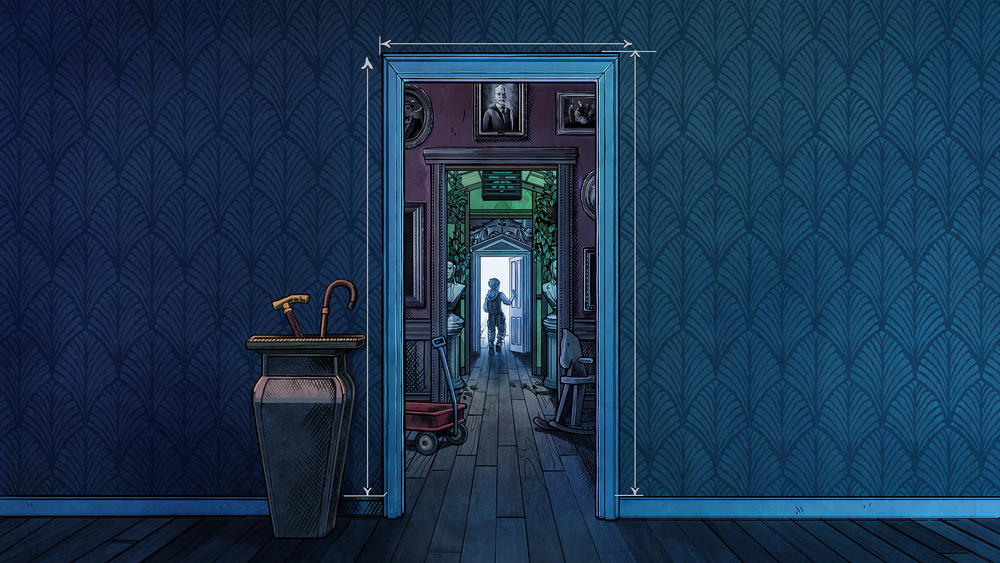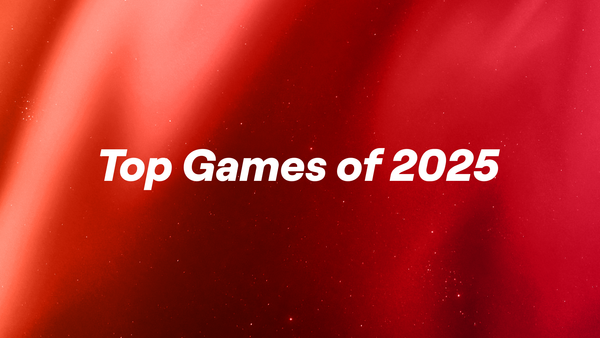Gambling with narrative in Blue Prince
Trying to nail down what Blue Prince is has been a discussion since the game was announced. Part Betrayal at House on the Hill, part Gone Home, and part Outer Wilds, the game nearly defies description. Even after playing it for over twenty hours and rolling credits, I find it hard to describe. Is it a card game? A “metroidbrainia?” However, after my time seeking the Antechamber, I’ve decided that I do know something about it: Blue Prince is more of a gambling game than Balatro.
Much like a Souls-like, the tenor of my time with Blue Prince is solely based on the success or failure of a run. That doesn’t need to mean defeating the boss, but it means learning something or making forward progress. You can end the night in the same place it started, but if you learned something (a pattern, a clue, a new thing to try tomorrow), it can be all worth it. Built into a Souls game is intrinsic trust that if I fail, it’s because of me—I got the parry timing wrong, my build isn’t right for this encounter, or I got too greedy.
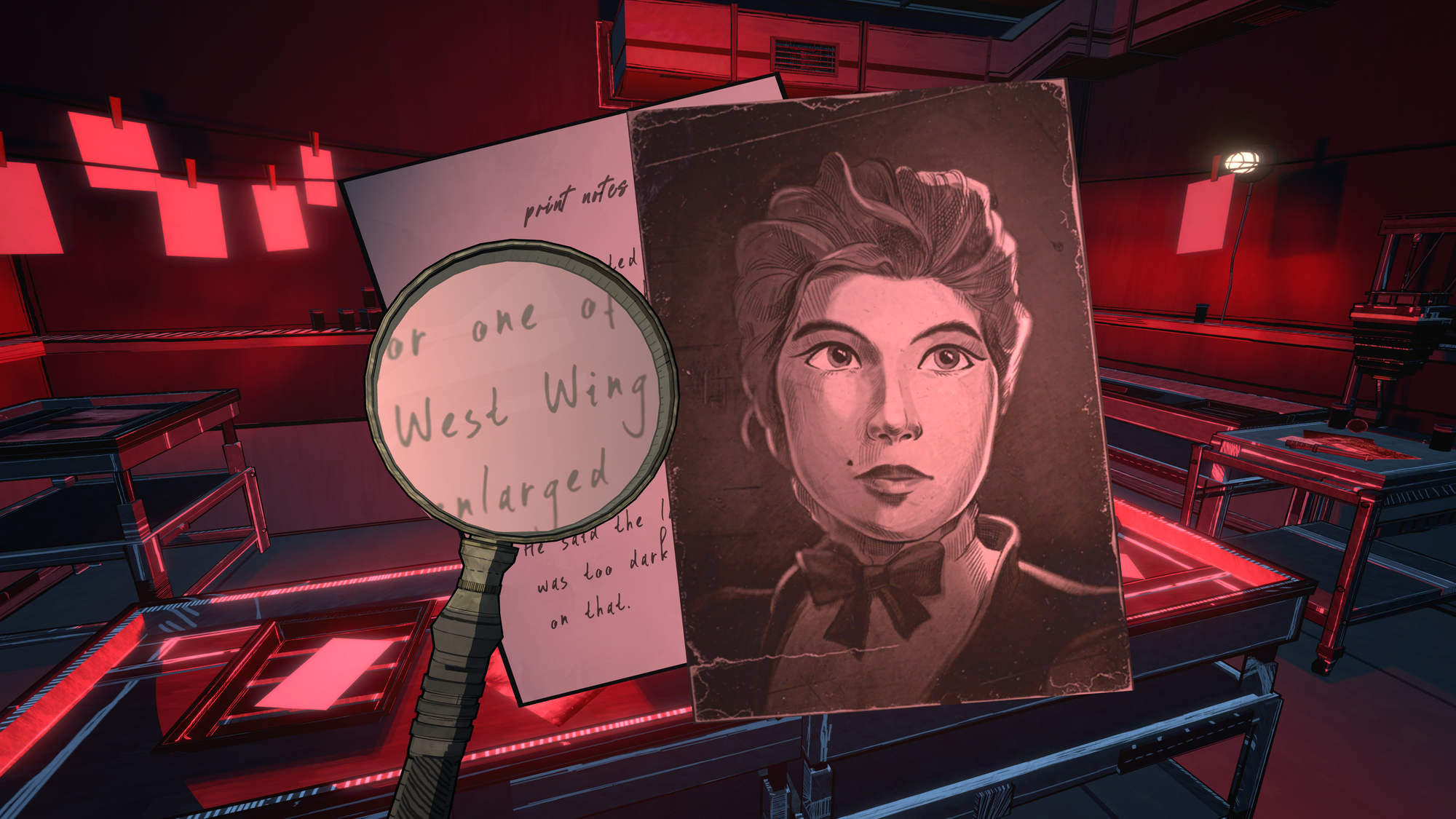
In Blue Prince…I just don’t know. The game keeps telling me to trust nothing: what I thought was decoration is a clue in an ever greater conspiracy, the notions I had about the house seem to be constantly proven wrong with time. Progress in the game is tracked by the pages of notes, screenshots, and drawings you collect than any trophies (though there are those too). At some point in the game, you’ll come across information that not everything is as random as you think it is, but, even upon entering the Room 46 for the first time and seeing credits, the house is random. Or, at least after 20 hours of playtime, it appears to be random.
Often while playing Blue Prince, I’ve been reminded of 21, that awful mid-2000s Kevin Spacey movie about the MIT Blackjack team using math to beat the casinos. I keep selecting rooms in the house, moving forward feeling that there’s an optimal path for me to take, that if I only knew more about how the house worked, I’d be able to achieve my goals. I know there is a logic to it all, but, just like the statistical math needed to game a hand of blackjack, I just don’t have it in me. Instead, I start the morning with my allotted amount of steps, and play the best hand I can, typically busting out on Rank 7 with nothing to show for it.
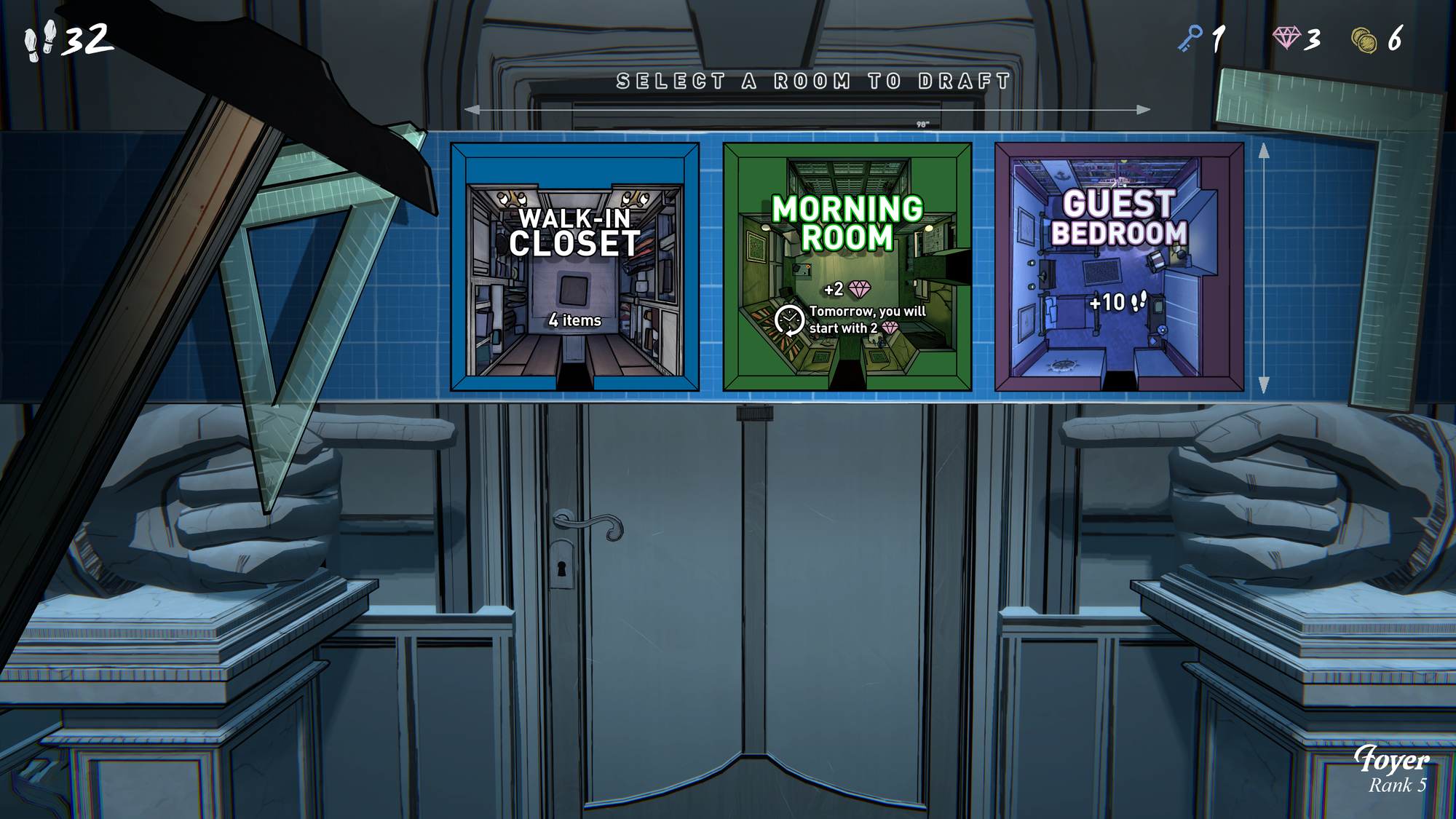
I explained to a friend a few days ago that I was in the “goals phase” of my time with Blue Prince, instead of the discovery phase. I had picked up enough information to know what I needed to do to make some big progress; there were a few leads I could chase down, any of them being seismic. That night I ended my two hour play session having achieved none of my goals and going to bed frustrated that I had wasted an evening at the Keno machine, pushing the buttons over and over again hoping to hit a jackpot.
That frustration went on for two nights, ending on the first run of the third night. Dear reader, it was the perfect run. Everything lined up: I got the right tools, rooms dropped like they should, I got the key I needed, and there were only a few tense dead-ends that made it all feel like it could come crumbling down. I made it to Room 46 after 49 days in the game, nearing the 25 hour mark.
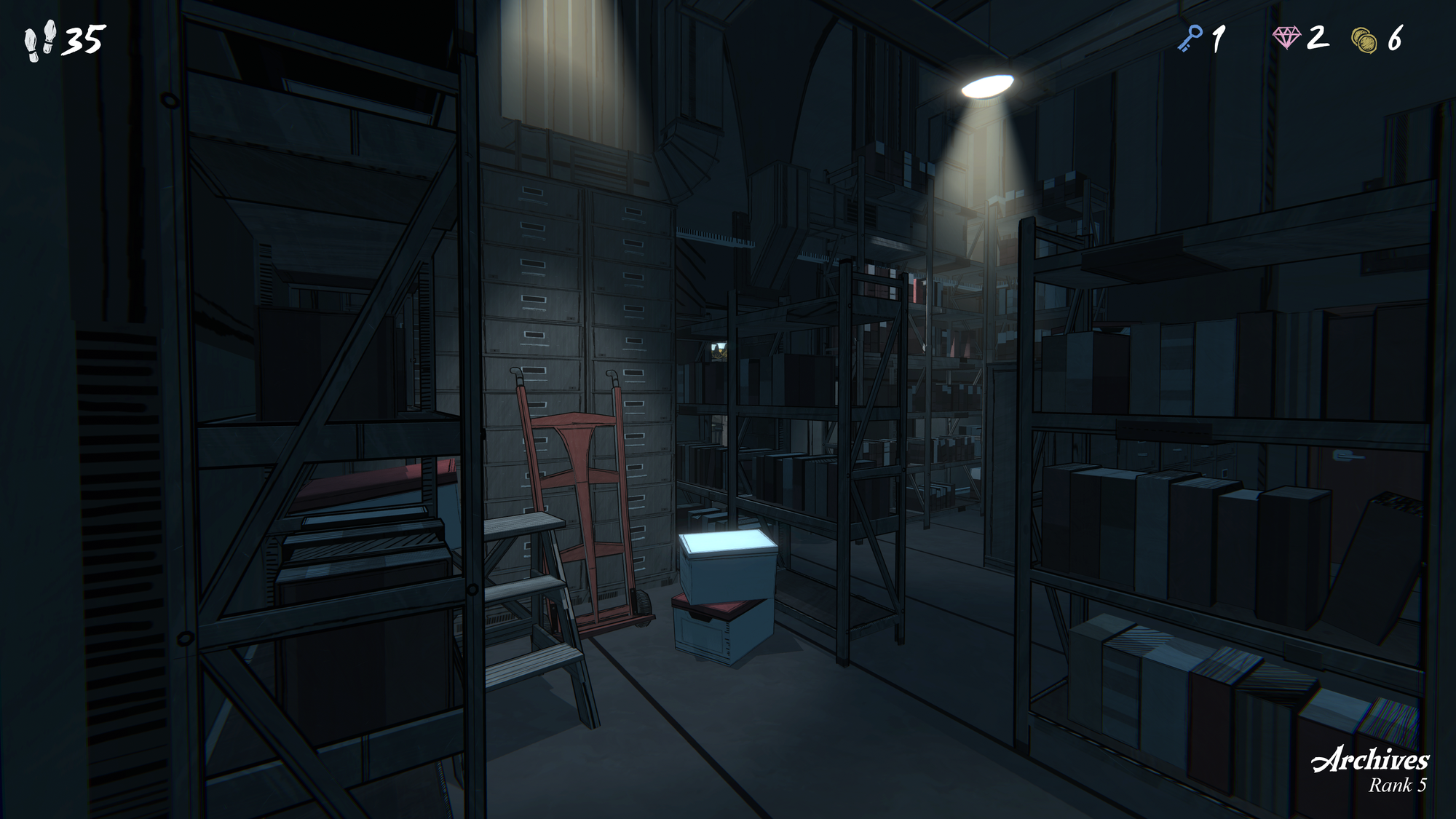
Let me let you in on a little secret: when you reach Room 46 for the first time, a cut scene will show you Room 46 from your character’s perspective just outside the slightly ajar door. Then credits will play. I say this both as a warning (once you enter Room 46 for the first time, your run is over) and also as an explanation: even in the game’s conclusion, you just need one more hit. I rode the greatest luck I had the entire game and instead of catharsis, I found a tease.
That is my fundamental struggle with Blue Prince. I don’t think I’ve loved and hated a game more than Blue Prince. Blue Prince has everything I love in games: deep mystery, a rewarding narrative, and a simple gameplay loop. But after so much time in the game, the gameplay loop doesn’t feel like a challenge, it feels like an impediment. As much as I’d like to imbue it with nefarious intent, I have to trust that the game is working on the same clockwork puzzle logic as everything else. There are rules, there must be. Otherwise, it’s not a puzzle, it’s a game of chance.
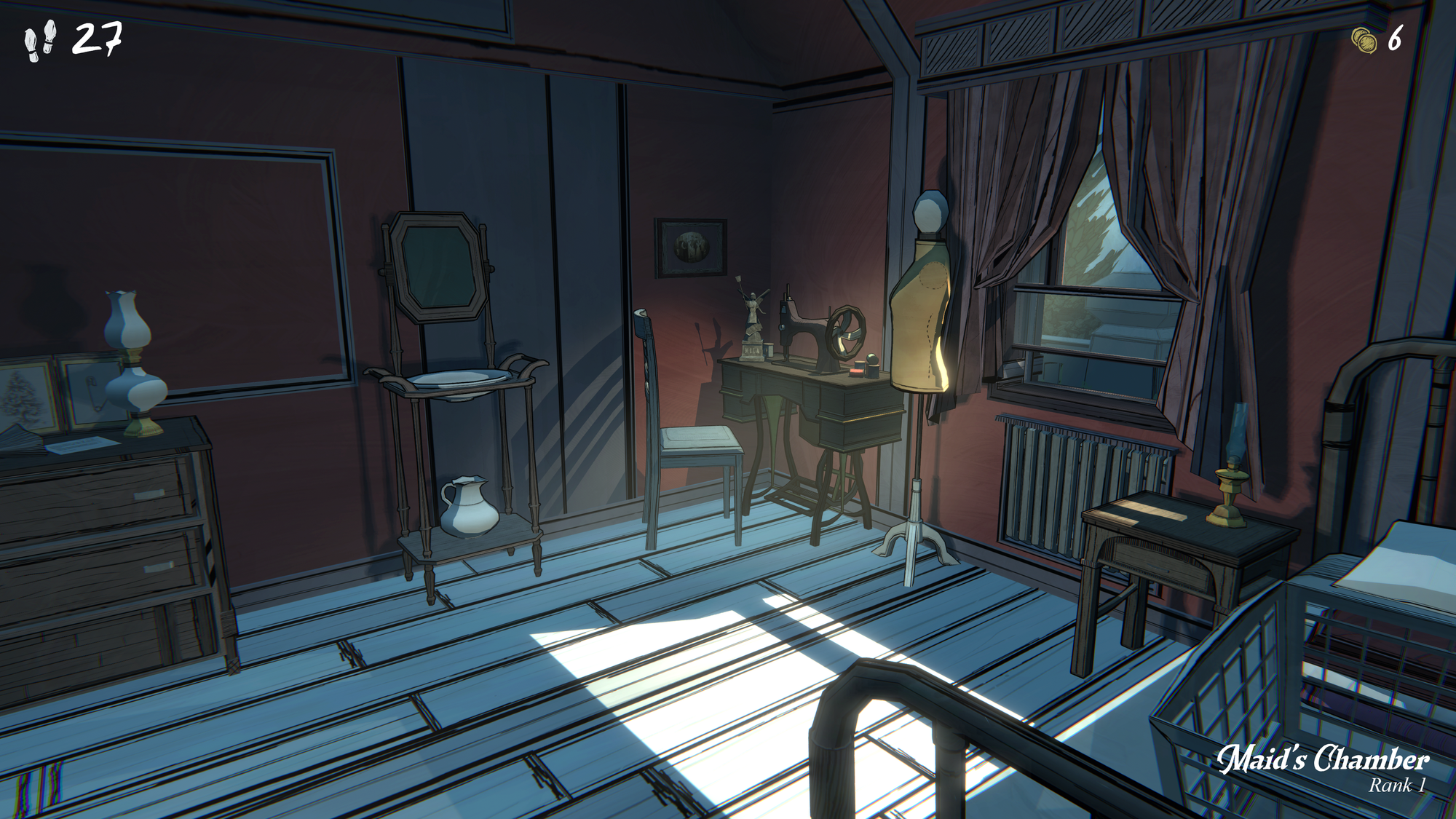
I’m taking a break from Blue Prince for now; having reached Room 46, I’m opening myself up to using guides, but even I approach that with trepidation: so many solutions and pieces of lore hide behind seemingly random chance. I want to see where the mystery goes, I want to open those new rooms, and I want to know more about the story, but that heater of a final run has stuck with me. That feeling of elation of it coming together even though I don’t know how much control I had in making it happen.
It took me 49 days to make it to Room 46 the first time and, as is Blue Prince’s want, I haven’t gained anything that will make getting to 46 any easier the next time. As compelling as the whole package is, the notion of hoping to hit a statistically improbable jackpot again is so off-putting. Blue Prince has been number one on my Game of the Year list and it has been fully off the list in the time I’ve played it; at this point, where it lands may just be a roll of the dice.


